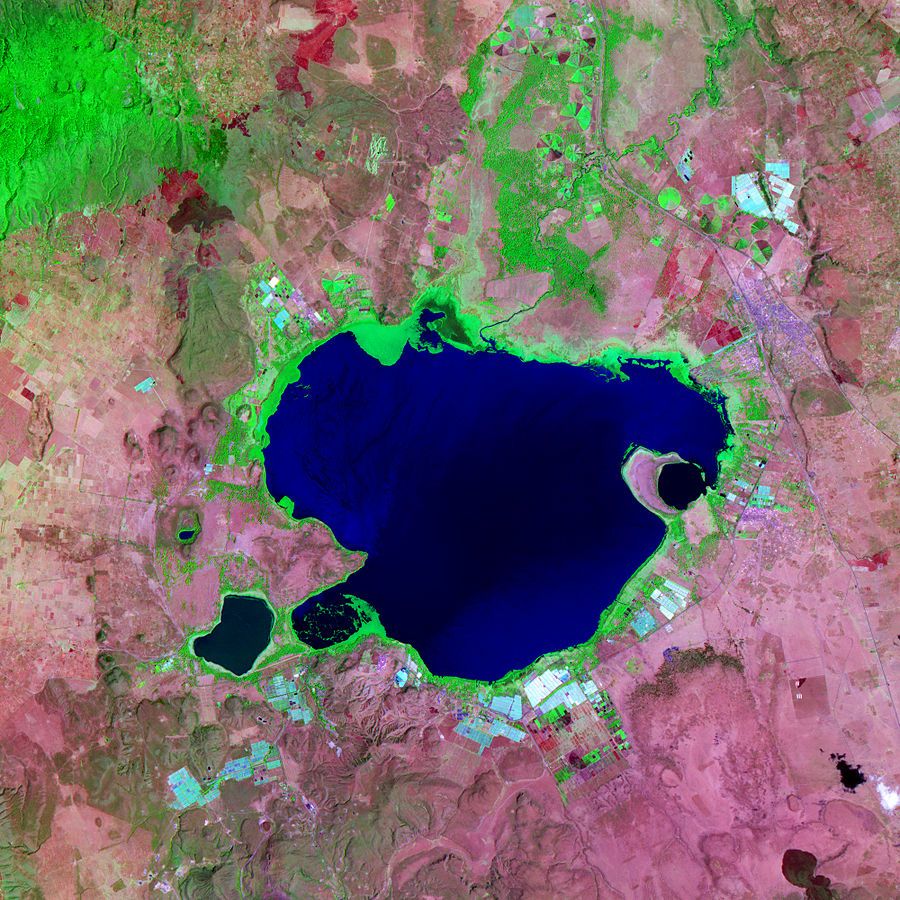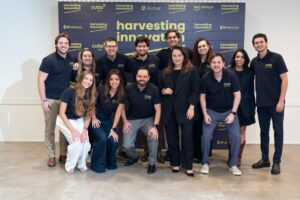Agriculture stakeholders, programmers, developers and data scientists are invited to come together in Nairobi, Kenya this July for a two-day hackathon aimed at finding technological solutions for smallholder farmers in East Africa as they adapt to changing conditions.
The Hack4Farming Nairobi event is part of an ongoing hackathon series by the same name, organized by aWhere, the Colorado-based agtech startup, and AgFunder alumnus.
The Nairobi 2016 event will mark the fourth event — and third held in Africa — in the Hack4Farming series that aWhere has organized in collaboration with local partners. The Nairobi event is being hosted by one such partner, the African Agricultural Technology Foundation (AATF).
“The series originated from aWhere’s recognition that there is untapped potential for collaboration between the agricultural partners we work with across the world and local technology innovators,” Leila Al-Hamoodah, a data analyst for aWhere and co-organizer of the event, told AgFunderNews. “Our most recent event took place in Hyderabad, India in May with co-partners International Crops Research Institute for the Semi-Arid Tropics (ICRISAT), Microsoft-India and T-Hub.”
During Hack4Farming Nairobi 2016 — exact dates will be announced later this month — seed company representatives will present their most pressing information challenges to teams of Nairobi-based software developers, and the hackers will have 48 hours to design, prototype, and pitch solutions. The winning hackathon team, as determined by a panel of judges, will receive a shared cash prize of $2,000, as well as the opportunity to work with aWhere and participating seed companies to develop and deploy their project.
The Hack4Farming mission is to put underutilized agriculture data, technologies, research, and expertise in the hands of local technologists, and to challenge them to develop solutions to the agriculture sector’s recurring challenges.
“Because Hack4Farming events typically take place in regions where smallholder farming is most common, we put a particular emphasis on technologies and challenges that will help smallholder farmers adapt and thrive,” said Hanna Camp, another data analyst for aWhere. “The specific challenge and the mix of hackathon participants vary per event, but the challenge always centers on agriculture. This event will challenge participants to develop a solution to challenges identified by partner seed companies operating in East Africa.”
The goals of each event are to create or strengthen networks between agriculture stakeholders and technology innovators in each region; to help local agriculture actors better understand the feasibility of applying technical solutions to some of their common tasks and challenges; to further embed agriculture into the local technologist scene and encourage further development of ag-tech solutions; to focus on ideas that have the potential to be self-sustaining impactful, and embedded in the local communities they serve; and to provide practical support for the event winners, and potentially other teams, to develop their ideas and become sustainable local businesses.
According to Al-Hamoodah, agriculture startups can benefit from involvement in a Hack4Farming event in a few different ways.
“First and foremost, they can send representatives to participate on teams. Although teams should not propose an already-existing solution as a hackathon project, ag startup members will have a valuable opportunity to meet colleagues, learn about the latest developments in agriculture technology, and challenge themselves to imagine new ways of doing things,” she said. “Our events have a mix of talents that too infrequently converge: we bring together stakeholders like value chain actors, research scientists, agricultural development specialists, and other connections that can be useful for a startup looking to establish itself and grow.”
Furthermore, aWhere is dedicated to supporting and encouraging the further development of hackathon solutions into working prototypes and businesses following the conclusion of Hack4Farming events. In the past, it has provided support through consultancy contracts to the winning team to continue their solution development, as well as by partnering with local mentorship services, such as its recent partnership with T-Hub, a start-up incubator in Telangana, India.
“In addition, an agriculture startup can potentially be involved as a mentor to teams,” Camp said. “Mentors can provide extremely valuable insight during an event to teams seeking a deeper understanding of the local agriculture problems and already-existing solutions and, crucially, can provide advice and experience on building a viable business model. Agriculture startups that participate in this way can raise their profile, build their network, and help grow their market.”
While aWhere understands that not all problems farmers experience can be solved with technology, and that there are significant policy, environmental, and economic constraints limiting farmers’ prospects that are beyond the power of an app to solve, it does strive to include policymakers in its events, and welcomes ideas for products, services, or solutions that can benefit farmers in an interesting or unconventional way.
“We strongly believe that information is power,” Al-Hamoodah said. “Too many farmers go without the information they need to make optimal growing decisions, or operate in communities where agriculture actors lack essential information to run value chains efficiently. In addition, we live in a global environment in which the volatility of climate conditions is increasing. Solutions to these challenges proposed by academics and Silicon Valley alone are insufficient to solve international problems, but rather there is a need for a strong and dynamic network of innovators that can put the data and technology resources available to use while leveraging local knowledge and remaining sensitive to local needs. We hope that our events can be part of building this network.”
Have news or tips? Email [email protected]





